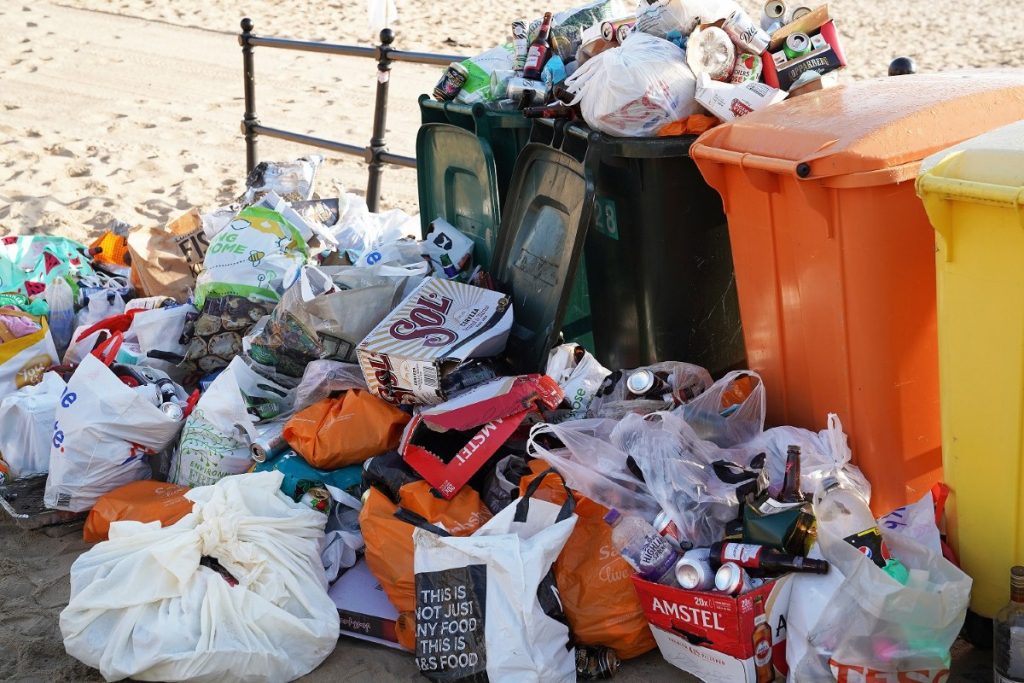By Julie Hill
Like many other people, I was disappointed to see the piles of rubbish left on beaches and in parks last weekend, as people took advantage of the latest relaxations from lockdown. At the same time, though, it provided a great illustration of a question that I and my colleagues at WRAP have been grappling with for the last few weeks.
When we are finally able to recover from COVID-19, do we just want to go back to the way things were before, and continue to trash the planet, both locally and globally? Or do we want to ‘build back better’, by taking better care of our local environments, and by creating a new, greener economy that replaces the jobs we’ve lost with more sustainable ones – all the while cutting waste and helping us tackle climate change?
In the space of just a few weeks, ‘Build Back Better’ has gone from being a hopeful hashtag to being an overwhelming chorus of voices for leadership and change. For the first time in my career of 40 years, it brings together so many things that need to be brought together – urging action on social inequality and racism, environmental degradation, preventive health, and community empowerment. It points the way towards an economy that works for everyone, and protects the things that matter to us, rather than treating them as sideshows to the main event.


Every organisation should be considering how it can amplify this call, and provide the means to respond to it. At WRAP, our first contribution is to sum up the many ways in which we know that moving to a more circular economy can help to rebuild. Our report, published this week, spells out the potential for more jobs, higher resilience, sounder long-term investments and changes to personal consumption that can make our lives both greener and better.
‘Circular Economy’ is often translated as ‘reduce, re-use, re-cycle’. Of these, most of us would probably say we’ve done most on the recycle end, with perhaps a bit of re-use and not a huge amount of reduction. This may have changed during the pandemic, we have yet to analyse that data, but the good news is that there are jobs to be had in all those modes. Replacing ownership of goods with ‘on demand’ options, enabling much greater remanufacturing and repair, and facilitating easier return of products and materials to their originator companies, are all activities that offer employment.
Even better, these are jobs that can be created across different geographical regions, helping to alleviate unemployment black spots. They involve a range of skills and opportunities for training, and can add to local resilience by providing goods and services on a regional and community level. The change of business-models resulting from COVID could offer new opportunities that add to this jobs bonus if the right incentives are put in place, for instance turning our hard-hit high streets into community hubs for sharing equipment and know-how, or repair cafes to roll-back our disposable lifestyles at the same time as increasing social contact. Introducing a ‘right to repair’, so that we could fix our stuff ourselves or take it to a local repair shop without fear of invalidating warranties, would add a further boost to the repair revolution.
Whether we are talking about immediate rescue packages, or longer-term financial assistance and investment, action by governments must embrace the ‘build back better’ package of needs. On the environment side, this has majored on ways to build back while meeting net zero carbon emissions. Circular economy plays its part in this, as the Committee on Climate Change has pointed out, but it offers additional benefits. As well as the jobs bonus outlined above, there are the resilience benefits of having shorter, more local supply chains and keeping materials close rather than discarding them and buying more from further away. There are benefits from reduced pollution of all kinds from decreased overall consumption, and a lower water footprint. And there are many cost-saving opportunities. However, these benefits cannot be realised if businesses and public bodies are ignorant of their existence and scale.
This is why the Circular Economy revolution must be underpinned by data and insight about how our material world works on a day to day basis. WRAP’s mantra of ‘target, measure, act’ has firmly caught hold in the war on food waste – more than 100 businesses are reaping the benefits of setting clear targets for waste reduction, measuring their baselines, and working towards improvement in a systematic way. Many more are set to join this effort. Every business, and all public bodies, should be adopting this mindset – analysing where their material footprint can be reduced, understanding where materials, components and products are sourced, how they are used, and how to get the most out of them again and again. This insight will be crucial to future competitiveness, resilience and reputation.
Therefore, all forms of government financial assistance should be requiring a ‘target, measure, act’ approach from businesses, and banks should be gaining the necessary expertise to assist in recovery plans.
Before the pandemic calls for political and social change were being fuelled by the declaration of a climate emergency, the increased consciousness of degraded environments not just across the globe but here in the UK, and a sense for some people that consumption was out of control. Now, we have the amplification of those calls to a point that not only the litter on the beaches, but more broadly the consumption, waste and inequality entailed in the former status quo seem even more inappropriate and unacceptable. Let’s use this opportunity to put ourselves on a better path.
Julie Hill is the Chair of WRAP (Waste and Resources Action Programme)
The opinions in Politics.co.uk's Comment and Analysis section are those of the author and are no reflection of the views of the website or its owners.












